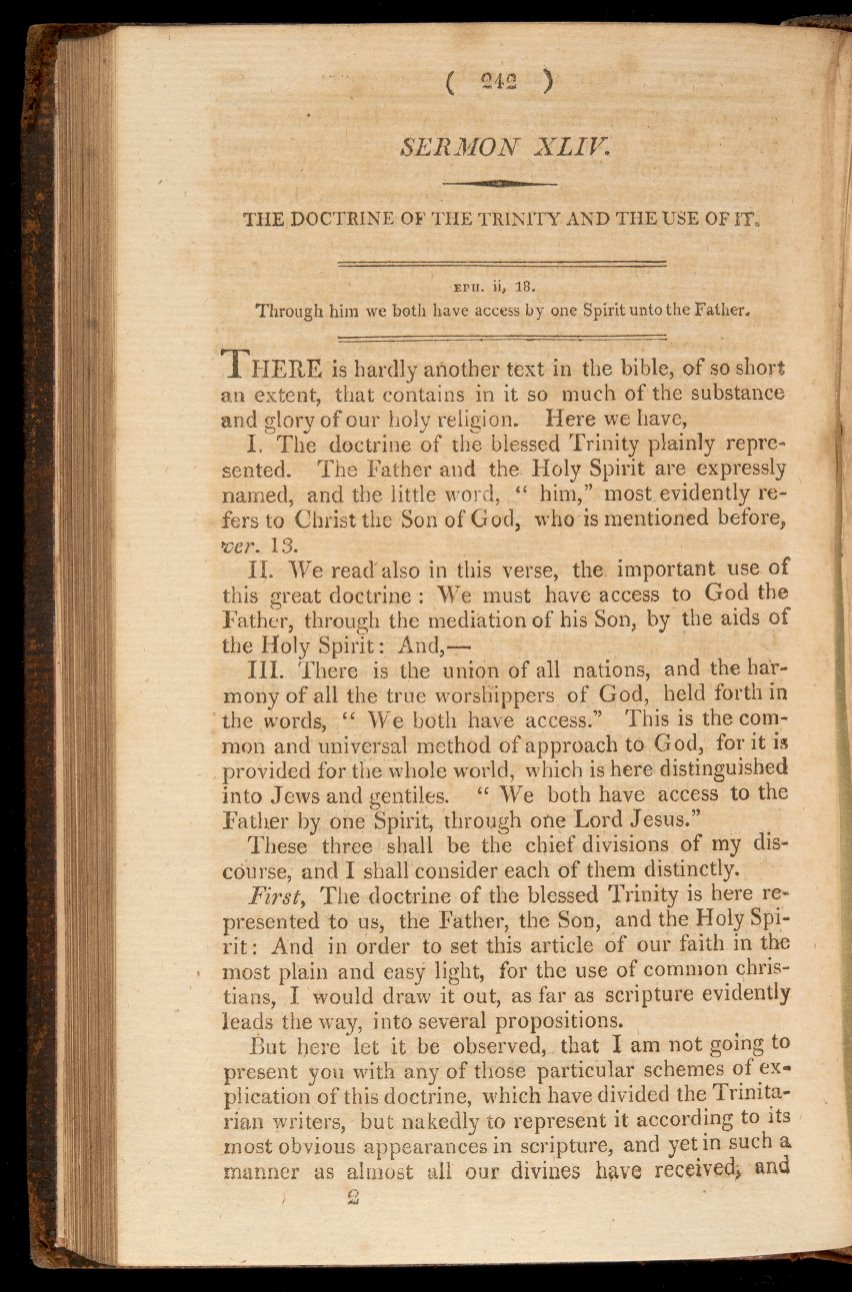

i
SERMON XLIV.
THE
DOCTRINE
OF
THE TRINITY
AND
THE
USE OF
IT
EPII.
ii, 18.
Through
him
we
both have
access
by one Spirit unto
the Father.
THERE
is
hardly another text
in the bible,
of
so
short
an extent,
that
contains
in
it
so
much
of
the substance
and
glory
of
our
holy
religion.
Here
we
have,
I.
The doctrine of the
blessed
Trinity
plainly
repre-
sented. The Father and
the.
Holy Spirit are
expressly
named,
and
the little
word,
"
him,"
most evidently
re-
fers
to
Christ
the Son
of
God,
who'
is
mentioned before,
'ver.
13.
H.
We
read'also
in this verse, the.
important
use
of
this
great
doctrine
:
We must
have access
to
God
the
Father, through
the
mediation of
his Son, by
the aids
of
the Holy Spirit
:
And,
III.
There
is
the
union
of
all
nations, and the
har-
mony
of all
the true worshippers
of
God,
held
forth
in
the
words,
"
We
both
have
access."
This
is
the
com-
mon
and
universal
method
of approach
to
God, for
it
is
provided
for the whole world,
which
is
here
distinguished
into Jews and
gentiles.
"
We both have
access
to the
Father
by
one Spirit,
through
one
Lord Jesus."
These three
shall be the
chief
divisions
of
my dis-
cOurse,
and I
shall
consider each
of
them distinctly.
First,
The
doctrine of the
blessed
Trinity
is
here re-
presented
to
us,
the
Father, the
Son,
and
the
Holy
Spi-
rit
:
And in
order
to
set
this
article
of
our
faith in the
most plain and
easy light, for
the
use
of
common chris-
tians,
I
would draw
it
out,
as
far
as
scripture
evidently
leads
the
way,
into
several
propositions.
But
bere
let
it
be observed,
,
that
I
am
not
going to
present
you with
any
of
those
particular
schemes
of
ex-
plication,of
this
doctrine,
which have divided the
Trinita-
rian
writers,
but
nakedly
to
represent it
according
to its
most
obvious
appearances
in
scripture, and
yet
in
such
a
manner
as
almost
all
our
divines have received; and

















